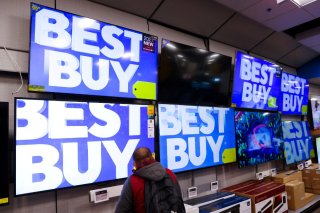The Holidays Could Boost Lagging Consumer Technology Revenue
This holiday season, NPD said, such product categories as TVs, tablets, “true wireless” headphones, and home automation products are seen as “bright spots.”
Revenue in the consumer technology sector will drop 6 percent in 2022 and 3 percent in 2023, according to the latest Future of Technology forecast from research firm NPD Group. The firm also said that due to higher average selling prices (ASPs), both years will be ahead of 2019 in terms of industry sales.
While holiday season revenue is expected to be lower than last year, it will remain 11 percent higher than in 2019.
“For the last two years consumers have relied on technology products to make their lives more comfortable and convenient while many worked, learned, and entertained mostly from home,” Paul Gagnon, vice president, industry advisor for NPD, said in the announcement.
“Rather than waiting for promotions, or in some cases specific products, they bought what was available when they needed it. But as consumers return to more ‘normal’ behaviors and schedules we are seeing a shift back to pre-pandemic purchase patterns and believe consumers will once again be seeking out holiday deals this Q4.”
This holiday season, NPD said, such product categories as TVs, tablets, “true wireless” headphones, and home automation products are seen as “bright spots.”
“Home automation products will see continued growth, with holiday unit sales expected to be up 5% year over year, as standards like Matter rollout making products more compatible and easier to set-up, encouraging adoption,” Ben Arnold, executive director and technology industry analyst for NPD, said in the release. “Smart doorbells and item trackers will be areas of growth in Q4, as consumers leverage holiday promotions as a reason to enter the category.”
Also this week, the nation’s leading consumer electronic-focused retailer released its quarterly earnings. Best Buy reported that its sales dropped 13 percent in the fiscal second quarter. However, the company did reaffirm its full-year guidance, per CNBC.
“I am incredibly proud of our teams as they continue to rise to the challenges of the past few years and I remain impressed with their ability to lead through the rapidly shifting business environment,” Corie Barry, Best Buy CEO, said in the company’s earnings release. “Our comparable sales were down 12.1% as we lapped strong comparable sales growth last year of 19.6%. Our online sales penetration, at 31% of our total Domestic sales, is almost twice as high as pre-pandemic Q2 FY20 while our diluted EPS grew over 40% versus Q2 FY20.”
“We are clearly operating in an uneven sales environment,” the CEO added. “As we entered the year, we expected the consumer electronics industry to be softer than last year following two years of elevated growth driven by unusually strong demand for technology products and services and fueled partly by stimulus dollars. The macro environment has been more challenged due to several factors and that has put additional pressure on our industry.”
Stephen Silver, a technology writer for The National Interest, is a journalist, essayist and film critic, who is also a contributor to The Philadelphia Inquirer, Philly Voice, Philadelphia Weekly, the Jewish Telegraphic Agency, Living Life Fearless, Backstage magazine, Broad Street Review and Splice Today. The co-founder of the Philadelphia Film Critics Circle, Stephen lives in suburban Philadelphia with his wife and two sons. Follow him on Twitter at @StephenSilver.
Image: Reuters.

